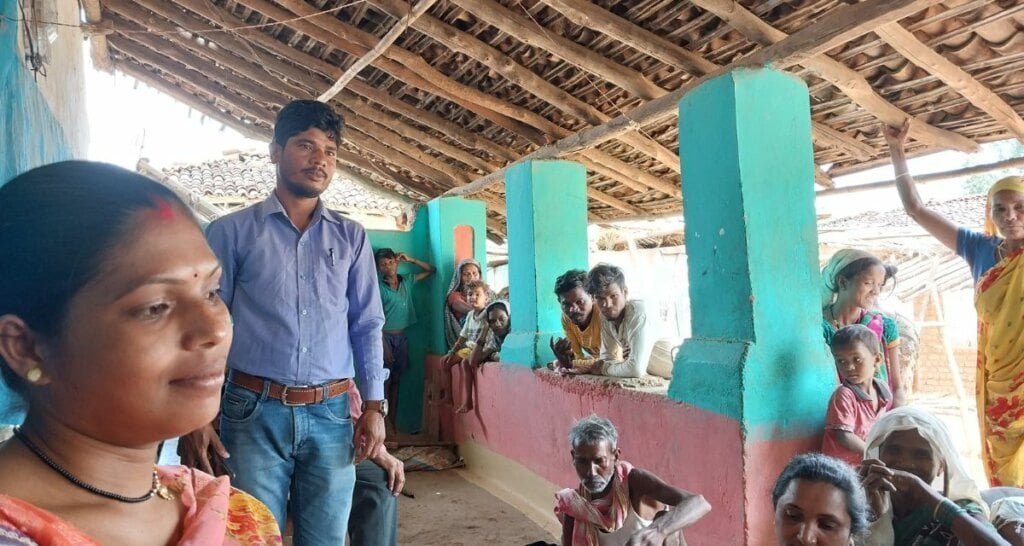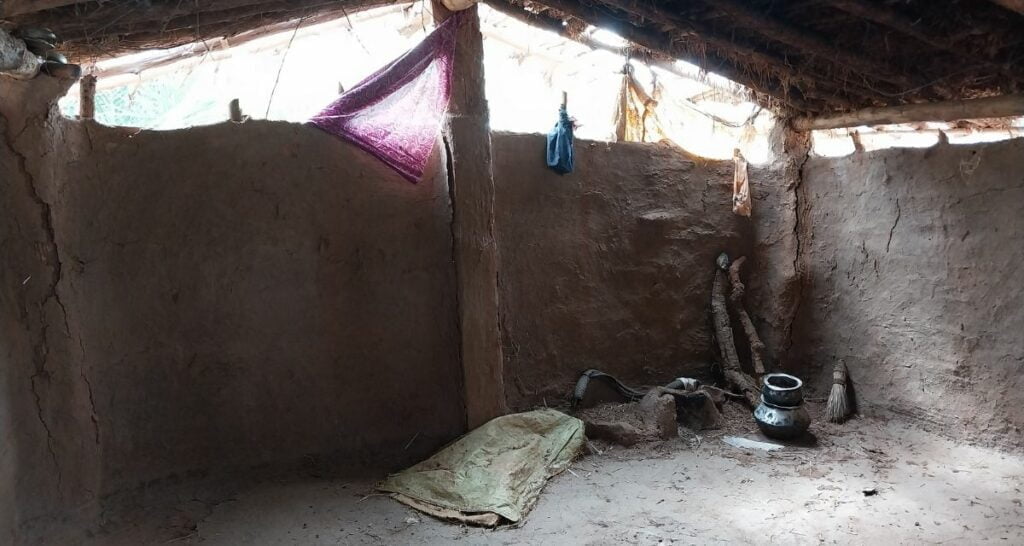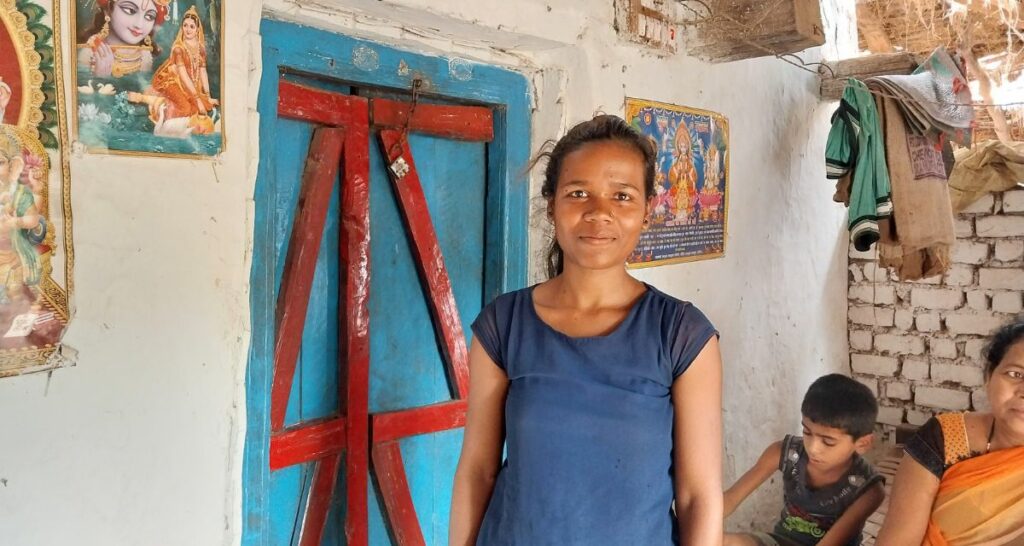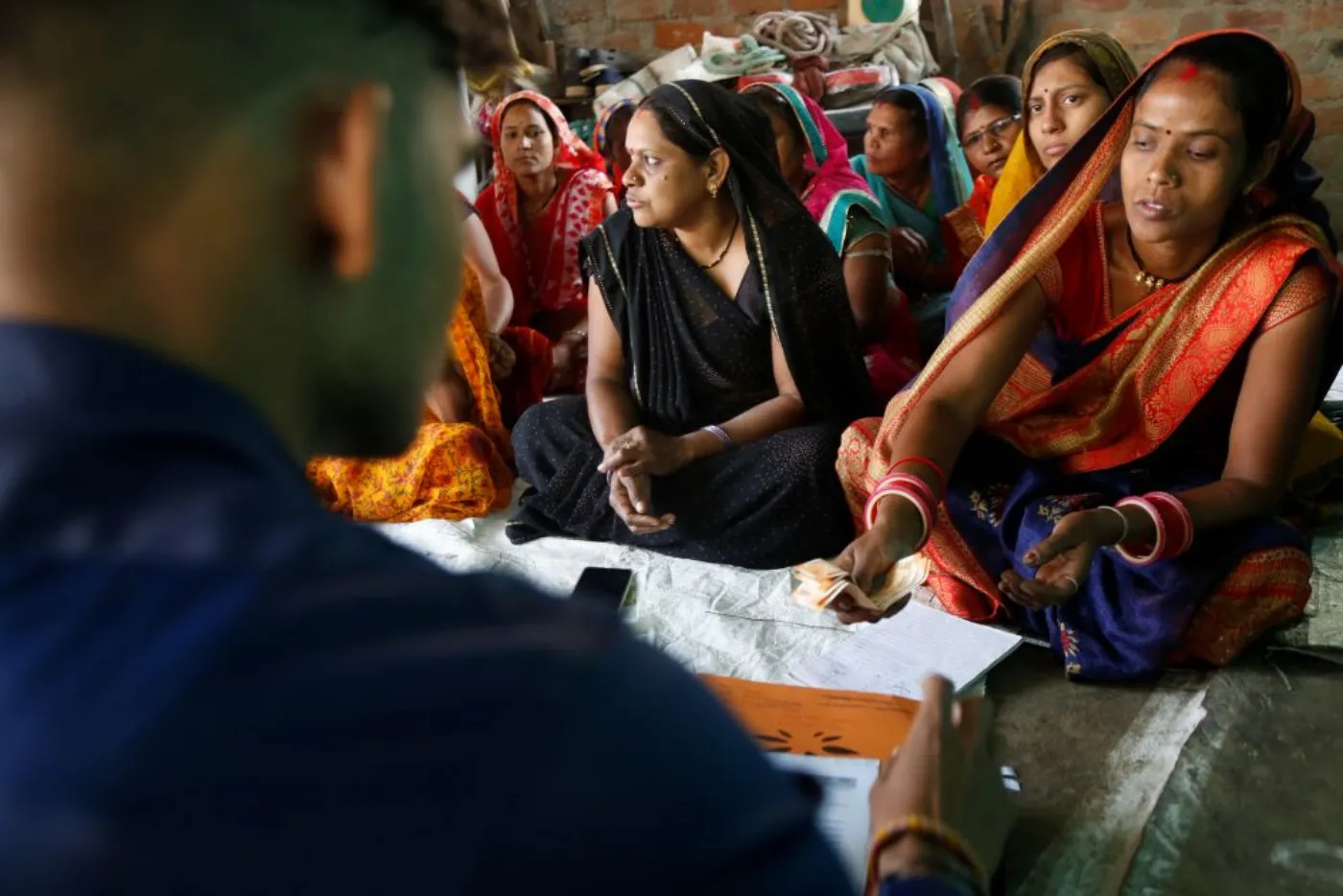By Deepanwita Gita Niyogi
Sunita Purame (20) is a college-goer. Her life turns upside down for five days every month when she is not allowed to enter the kitchen or even fetch a pail of water as she is menstruating.
She spends those nights on the floor of a hut, specifically made for isolating women on periods. If she does not feel well, she is confined to a room or the courtyard in her house, but that is a rare thing. If lucky, other menstruating girls would join Purame in this lonely, solitary hut and there is some company.
In the newly created Mohla-Manpur-Chowki district of Chhattisgarh, the Gond tribals still follow menstrual isolation. Forget prohibition on cooking and entering kitchens, women are not even allowed to touch hand pumps. Water for drinking and bathing is fetched by family members.
In many interior villages, girls skip schools and colleges and spend time away from their homes on those difficult days. In some families, women are not even allowed to take a bath.

A few camps were organised by the government to bring about a change in attitude but they haven’t been uniformly successful. However, social worker Harish Chhatri said some behavioural changes were gradually creeping in. They now use sanitary pads and were willing to talk about periods, but not in front of men.
Chhatri is a resident of the adjoining Rajnandgaon district and works for non-profit Jan Kalyan Samajik Sansthan, which has 30 years of experience working with the Adivasis of Manpur on water-related issues.
Clinging to outdated ideas
Dhabba gram panchayat in Manpur has five villages under it. Here, Chhatri has been educating the mostly Gonds residents on menstrual health and hygiene for the past six months.
In Dhabba’s Patelpara hamlet with a population of about 250, the topic cropped up at times during the meetings held at the Anganwadi centre manned by Lalita Tulabi. “I always urge women to maintain cleanliness during periods. Mitanins, who are female health workers, help me spread the word. We tell them not to practice isolation, but they do not listen. On my part, I also cannot say much, as I have to work in the village,” said Tulabi, who also has not been allowed to touch hand pumps when she bled.
“Even if the girls confide about the pain or other issues, it is only to their mothers. Most of them have been told not to eat sour food items, touch water sources and enter rooms and kitchens,” Chhatri said, while in the courtyard of a house where around 30 women had assembled for his educative session.

Sukaro Ghaore, in her 60s, said women did not take bath for five days earlier, but they break the ‘rules’ nowadays. “Cooking is a definite no-no. If there is no one else to prepare food at home, women have to stay hungry,” added Narmada Usare. Husbands have to take up the role sometimes, in the absence of women members.
Sangeeta Yadav (30), a non-Adivasi woman, arrived in Patelpara after her marriage almost nine years ago. But like the tribal communities, she also stays in isolation. “Rules have to be followed. When I bleed, my sister-in-law cooks for the family. I am confined to a room.”
Also read: In Rajasthan, Family Planning Is A One-way Street
Opting for sanitary pads
Yadav said many girls nowadays know about pads and use them instead of cotton cloth pieces. Women who prefer the old ways, however, dry the cloth in a separate corner inside the house.
“Cloth has to be washed properly and it is difficult to dry them in a household full of men,” said Bhagyashree Yadav, a Class 11 student.
According to Chhatri, his organisation has been trying to inculcate behavioural changes — a most difficult and time-consuming effort. “We have shown a couple of videos to school children in around five villages, including Belgaon village, about 18km from Dhabba. Anganwadi workers and mitanins promote the use of pads made by women’s groups.”
A 2021-22 study by the Jan Kalyan Samajik Sansthan in 20 villages of Manpur with the help of mitanins has revealed that of the 3,504 teenagers, 1,387 used sanitary napkins and 2,117 used cloth.

Admitting that period talk was still taboo, block coordinator for the mitanin programme, Admawati Vasnik said, “Cloth is definitely a good option, but many women use pieces of old jholas and jute sacks, which are very unhygienic. Also, they are not dried properly in sunlight.” She was attending a meeting of mitanins in Kohka gram panchayat that has six villages under it.
Vasnik said pads are distributed in villages occasionally. “Girls do not like washing cloth pieces. They are ready to shell out up to Rs 30 for a packet of sanitary napkin, but desist buying it from shops.”
Mitanins like Vasnik want to end the practice of isolation. “Even shelters made of dried leaves and twigs house menstruating women. But who pays heed?” she said worrying about the safety of women during these periods.
An uneasy calm
Most Adivasi girls now realise that menstrual taboo is a bane, but they dare not raise their voices. “The village is dominated by tribals, so what they want prevails,” said Rashmi Katingal, who has finished college and is a friend of Purame’s.
Purame’s mother Ankalo Bai explained why isolation was followed. “It has been in practice for generations and nobody wants to displease gods by breaking those rules. So, we send girls outside for a maximum of three to four days when they bleed. They take baths outside and spend nights on the bare floor.”
Manpur-based Anganwadi supervisor Bhubaneshwari Yadav said a few awareness camps were organised in the area in 2019, but people reacted negatively. Chhatri cited how a camp organised in Sitagaon village in Manpur went awry and people were very angry with the district administration. “After that, camps could not be organised. I try to talk to them during the Suposhan Abhiyan and other programmes held at Anganwadis, but they still carry on with age-old rules.”
“Women are not ready to change,” Yadav vented her frustration.
Also read: Tribal Women In Chhattisgarh Innovate With Forest Produce
Deepanwita is a Delhi-based journalist with a keen interest in covering all aspects of the environment and development. She has also covered stories related to science and food. When we say environment, it encompasses a broad range of issues, right from the impacts of mining to how climate change affects women.
Featured Image Source: Deepanwita Gita Niyogi
This story was published by 101 Reporters and has been re-published here with consent.
About the author(s)
101Reporters is a pan-India network of grassroots reporters that brings out unheard stories from the hinterland.






